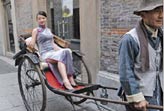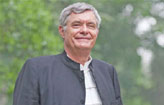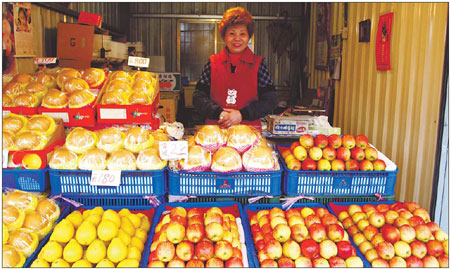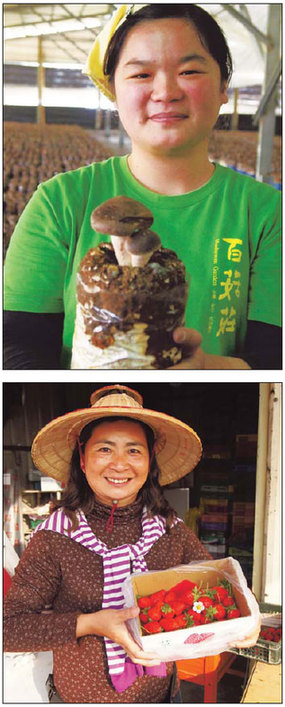Tips and Articles
Faces of Taiwan
Updated: 2011-05-15 08:04
By Pauline D Loh (China Daily)
|
On the highlands of the Central Ranges, descendants of old soldiers cultivate honey-sweet apples, lemons and huge crystal pears the size of a watermelon. Photos by Pauline D Loh / China Daily |
|
Taiwan's new generation of farmers cultivate crops that can bring in the tourist dollars - like mushrooms and strawberries. |
Individual travel to Taiwan for mainland visitors will be facilitated from as early as next month. Pauline D Loh gives a preview of the possibilities of a free and easy tour.
You cannot escape the presence of tourists from the Chinese mainland at all the most prominent tourist landmarks. Busloads of eager visitors often overwhelm with their strident presence at the must-see, must-do routes of Sun Moon Lake, Alishan and the Museum of Taipei.
Most of the time, they are rushed through a round-island tour in just 10 days, spending an average of perhaps half an hour at each tourist site before ending up in the coach most of the time.
These hurried visits have sometimes caused tempers to flare as the weariness of the journey sets in. Ugly incidents have scarred the travel experience with jostling and queue- cutting at prominent photo-taking spots - including the Queen's Head rock at Yeliu and the stone steles that mark the location of Sun Moon Lake.
The impressions these incidents have left on the island hosts are far from pleasant - or even accurate. So hopefully, when the first batches of independent travelers arrive in June, they will show better manners.
My husband and I had planned an 11-day trip to Taiwan early in spring, and though we literally took it free and easy, it was still a tightly packed schedule that only managed to show us half the island.
On that timeline, we could not manage to go south beyond Taichung, and our carefully planned and personalized itinerary took us on a loop from Taipei to Taichung, across the central mountain range to the famous Taroko Gorge, down the foothills of Yilan, up coastal Hualien to the north-eastern corner where the fishing port of Nan Ao is, round the tip of the island to Yeliu and back to Taipei.
It was an exhausting journey for two ageing travelers, but our eyes were opened to a kaleidoscope of encounters that no groupie tourist could have experienced. We got to know several Taiwanese, and we had many meaningful conversations as well as countless fleeting pleasantries.
Meeting the locals was important because both my husband and I had personal ghosts to exorcise. For me, it was to dispel the starched and stilted impressions which left me grinding my teeth after covering Taiwan politics in the '80s for my Singapore newspaper. My souvenirs from those years had been a bad taste in the mouth and an unwillingness to return.
My husband, also a journalist, had never been to the island, and he was curious to either confirm or rectify the reports he had been reading for the past two decades.
We were not disappointed. When you looked beyond the political posturing, grassroots folks all share the same concerns, no matter which side of the Straits they come from.
No one on the ground is really concerned about macro-politics.
Take our driver-guide, for instance. A fifth generation Fujianese emigrant settled in Taichung, he says he votes for the person who can best take care of his family's welfare. Xiao Qiu is very tech-savvy and a bit of a car buff. The Volkswagen passenger van he drives is a top-class imported model and it's going to take him a few years to pay off the loan.
For him, politics is colorblind, and there is no red, blue or green.
It is an attitude we encountered repeatedly throughout our sojourn. We were welcomed with open arms and goodwill, and everywhere we went, we saw tourism entrepreneurs embracing the mainland Chinese market with great enthusiasm.
"We are family," the owner of a Yilan bed and breakfast pension told my spouse, in spite of the fact that he only managed heavily accented Mandarin and my husband spoke no Fujianese. But they understood each other well enough to share a late night bottle of local rice brew.
In the Central Ranges, we visited large farms bequeathed to old soldiers of the Kuomintang, the dregs who had been stranded on the Myanmar-Vietnam highlands. Their descendants have since left history behind, and some are concentrating on cultivating huge crystal pears that are melon-sized, and sweet lemons you can cut up like an orange and eat.
Others have turned the Ching Jing Farms into a holiday paradise, full of European-style chalet retreats, with organic vegetable farms to visit and even a sheep pasture where machines dispense packets of fodder for visitors to feed the animals. We saw a castle-like chateau named Ye Olde England which our guide said attracted urban Taiwanese every weekend.
One thing that impressed us was the environmental awareness that seems to pervade every strata of community. Taiwan had been under Japanese rule for 50 years, and much of the attitude towards land and nature probably stems from that period.
"The Japanese loved the Taiwanese cypress and they took away many to build houses in Japan. But for every tree they cut, they planted 10 more," our guide told us. He added that in the early days, Kuomintang officials chopped down many trees as well, but did not replant any - which started rapid deforestation. On an island habitually battered by typhoons every summer, the absence of trees led to almost unstoppable erosion.
Fortunately, new policies have plugged the gap, and now Taiwan has some of the strictest forestry regulations in Asia.
Much of the "green movement" can also be credited to indigenous aboriginal cultures, and it is something that is slowly filtering through to the rest of the community as the movement to preserve this heritage gathers strength.
There are more than 30 major aboriginal groups mainly divided into highland and lowland tribes, and most have been living here long before Han Chinese ever stepped onto the island. One common thread unites these disappearing communities - great respect for the land and all that it holds.
In the Central Mountains, we stayed at a resort that was totally managed by an indigenous tribe. We slept in chalets built along traditional models (but with all the modern conveniences added), ate wild boar meat, and drank a local tea infusion made from wild marigold.
The staff - including cooks and waiters - showed off their tribal songs and dances to guests each evening, and it was an experience we enjoyed more for the sincerity of the sharing than the professionalism of the performance.
We met with the real locals again at Sun Moon Lake where an aboriginal princess led a troupe of singers in performing for the boatloads of tourists who disembarked in droves to take pictures of the lake as proof of their visit.
Tom and I sat down after the noisy hordes had left and enjoyed a singalong with the performers, which included a young Jay Chou look-alike. He was, we were told, from a warrior tribe, but we found his songs soothing and peaceful.
His ditties would have been a fitting serenade for the hopeful young couple we saw posing for their wedding album by the shores of Sun Moon Lake.
Later on in our journey, the same hope was mirrored in the smile of the clear-faced shop assistant of the mushroom farm we visited.
And again, in the quiet repose of a woman and her dog taking in the sea air at Nan Ao port, we saw the same hope and prayer for a future that is politically stable and prosperous.
Taiwan faces - they spoke to us louder than any travel brochure ever could.
(China Daily 05/15/2011 page16)
E-paper

Thawing out
After a deep freeze in sales during the recession, China’s air conditioner makers are bouncing back
Cool Iron lady
Of good and evil
Build on security initiatives
Specials

Memory lanes
Shanghai’s historic ALLEYS not just unique architecture but a way of life

Great expectations
Hong Kong-born singer songwriter rises to the top of the UK pops.

A diplomat of character
Belgian envoy draws on personal fascination to help build China ties.


